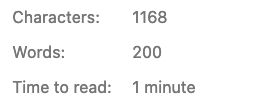ἴδμεν γάρ τοι πάνθ', όσ' ένι Τροίη Caught in the unstopped ear; Giving the rocks small lee-way The chopped seas held him, therefore, that year. --Ezra Pound, Hugh Selwyn Mauberly
A paragraph makes a statement, states a claim. It conducts what Bertrand Russell called “the essential business of language”, namely, “to assert or deny facts.” Because it opens such a claim to the criticism of peers who are qualified to say whether it is false, a paragraph is fundamentally “transactional.” A paragraph takes a position and allows the reader to take theirs in accordance with or in opposition to it. This is not how Wittgenstein’s philosophical “remarks” operate; you are not supposed to ask yourself whether you agree with them or not. You don’t have to make up your mind about whether they are true or false. You only have to understand them; you have to get them to make sense. You have to be able to think them. They are like the strophes of a poem, which are neither right nor wrong, neither good nor bad, but should make you feel something. Thus, in poetry, the emotion is brought to presence; in philosophy, the concept.
